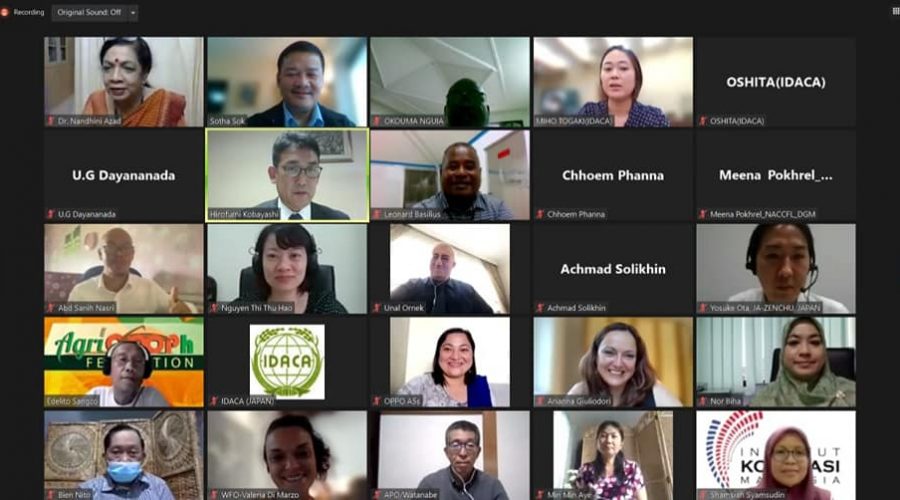
The Climakers Asia Digital Workshop!
The Climakers Asia Digital Workshop organized by the Institute for the Development of Agricultural Cooperation in Asia (IDACA) in collaboration with the world farmers’ organisation (WFO). Stories from the field across the Asia region (SA, SEA, Pacific, Asia-Europe, and Northeast Asia/East Asia) were shared and exchanged by farmer leaders and their representatives related to the climate change. Such stories ranging from crops issues, flood, forestry issue, relationship between environment and biodiversity, drought, increased seas level, diseases, markets, farmers are aging, youth, youth in agriculture and rural work, gender issue, limited capacity of farmers to adapt to the climate change, digitalization, cattle issues, decreasing of rural people and labor for agriculture.
Strategies to tackle climate change and renewable energy program as well as the best practices on climate change, mitigation and adaptation to protect biodiversity.
In conclusion, we could realize that the needs to reach a global goal by 2030 are similar and or the same, but the needs to solve problems sometimes are difference from country to country and or from region to region to tackle the challenges on climate change. The pandemic however has also put further pressures to the climate change for farmers, especially small farmers in developing and least developed countries which we need to find better solutions for farmers, farmers’ organizations and agricultural cooperatives to ensure they can continue and work on their farms sustainably because small farmers contribute largely and actively to produce food to feed people. Impacts from climate change and the pandemic provided us clear picture to ensure agriculture must be a business.
From our perspective, to reach the global goal in the context of threats of climate change and Covid-19 and beyond the pandemic, we need to find better strategies to re-build up a partnership amongst the relevant stakeholders such as development agencies, public sector, academia, social media, scientists and private sector included the financial institutions, moreover the collaboration amongst the farmers’ organizations and agricultural cooperatives in developing and or least developed countries with farmers’ organizations and agricultural cooperatives in developed/rich countries.
Build higher education, professional skills included digitalization, resilience, stronger cooperatives and farmers’ organizations for farmers and farmers’ organisations and agricultural cooperatives is a must. At the same time, we would also need to revitalize agricultural cooperatives and farmers’ organizations to be more inclusive.
To reach the above concerns, we really need a high commitment and actual action of the world leaders to function and create responsive policies to support farmers and the rural farming communities.